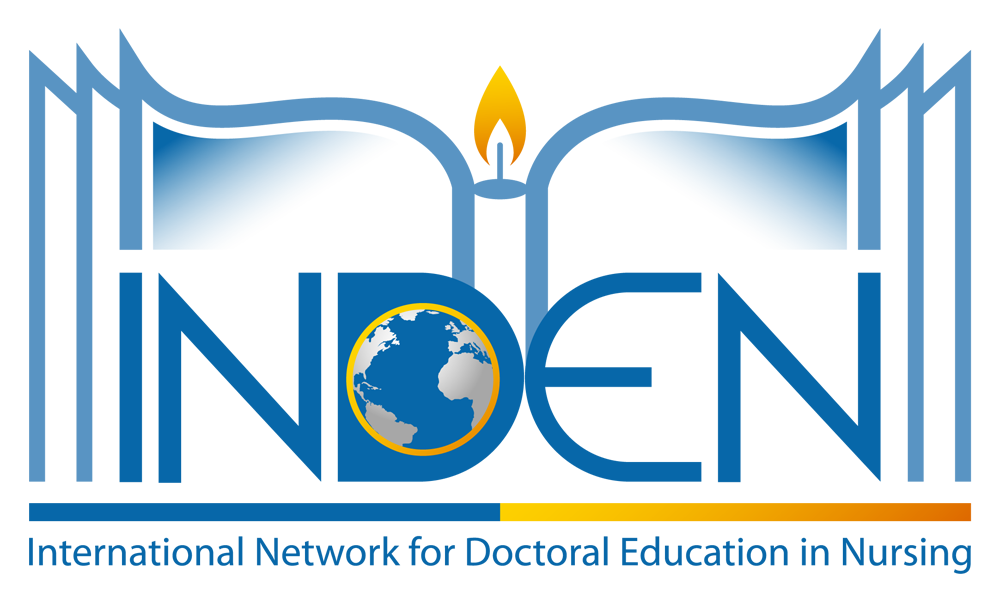
About Us:
International Network for Doctoral Education in Nursing
Our History
The beginnings of this group go back to 1995 when the University of Michigan School of Nursing hosted the then Doctoral Forum in Nursing [a U.S group]. The theme of the conference was focused on “Generating Nursing Science in a Global Community.” Many international speakers and guests participated; all international doctoral programs were invited. Strong interest was expressed at the 1995 meeting for the creation of an international network to enable collegial exchange and lay the groundwork for global collaboration.
A small planning group, comprised of Dr. Katharyn May, Canada, Dr. Afaf Meleis, USA, Dr. Hugh McKenna, UK, and Dr. Shaké Ketefian, USA, developed a one-day conference, which was held on June 17, 1997, in Vancouver, Canada, during the International Council of Nurses Quadrennial meeting. Over 85 nurses attended this meeting. Part of the day was devoted to presentation of four scientific papers and dialogue related to them, and part of the day was devoted to a discussion of next steps for the group; there was discussion on whether we should formalize the network and have officers and dues, and the frequency with which meetings of the group should be held.
An electronic group was created to enable participants to engage in dialogue on issues of interest; they actively used this group to communicate and stay together while we determined our next steps. We also created a homepage for the group which is experiencing expansion. The group decided to organize its next meeting during the auspicious occasion of the ICN Centennial meeting. Accordingly, a one-day scientific session was developed and presented in London and was held on June 27, 1999. The theme of the session was “Quality in Doctoral Education: Empowerment Through Nursing Science.” Dr. Eloita Arruda of Brazil gave the keynote address. Six other colleagues from different countries discussed strategies for strengthening quality and provided examples of international collaboration in doctoral education. Drs. S. Ketefian, H. McKenna and A. Meleis were co-chairs of the conference.
One hundred-twenty nursing faculty, doctoral program directors, deans and nursing students from 16 countries attended this event, which further cemented the group’s commitment to become formalized as an international professional entity in order to maximize its impact.
Those attending the London meeting reviewed and commented on a draft of our structure document. Subsequent to the meeting the group continued to refine the document; in October 1999 those attending the meeting electronically voted to adopt the document titled “Aims and Procedures, International Network for Doctoral Education in Nursing.” The document will guide the manner in which we conduct business. It is now available on this website for the information of interested individuals. All scientific papers presented at the biannual meetings are placed on this website with the permission of authors.
INDEN’s Purpose
— Mission
The International Network for Doctoral Education in Nursing (INDEN) is a non-profit professional association dedicated to the advancement of quality doctoral nursing education globally.
— Vision
Quality doctoral nursing education that is available and accessible to all nations.
— Values
Respect: We engage in our association activities from a position of respect for one another and appreciation for the rich national and cultural heritage that we each bring to our efforts to achieve our mission.
Diversity: We welcome diversity in approaches to both doctoral education and research.
Integrity: We are committed to honesty, fairness, openness, and ethical behavior in all of our activities.
Solidarity: We are committed to supporting one another in the advancement of doctoral education in nursing.
— Objectives
Foster ongoing global networking and professional advancement.
Promote curriculum development, enhancement, and program evaluation.
Encourage collaborative research, educational initiatives, and the dissemination of innovation in doctoral nursing education.
INDEN activities include, but are not limited to the following:
-
Quality Indicators
Maintain quality indicators and guidelines for doctoral education that are relevant to different countries.
-
Exchange Ideas
Pursue opportunities for the exchange of ideas to generate substantive nursing knowledge that is globally relevant and accommodating to the view of societal needs and evolving socio-political structures.
-
Collaborative Processes
Develop mechanisms that foster the productive exchange of individuals and ideas across doctoral programs within and between countries.
-
Dialogue and Networking
Promote opportunities for dialogue and networking among doctoral educators to address issues of shared interest in different regions of the world.
-
Influence Policy
Identify strategies for influencing policies relevant to doctoral education.
-
Educational Offerings
Quality education discussing nursing education on a global scale.















